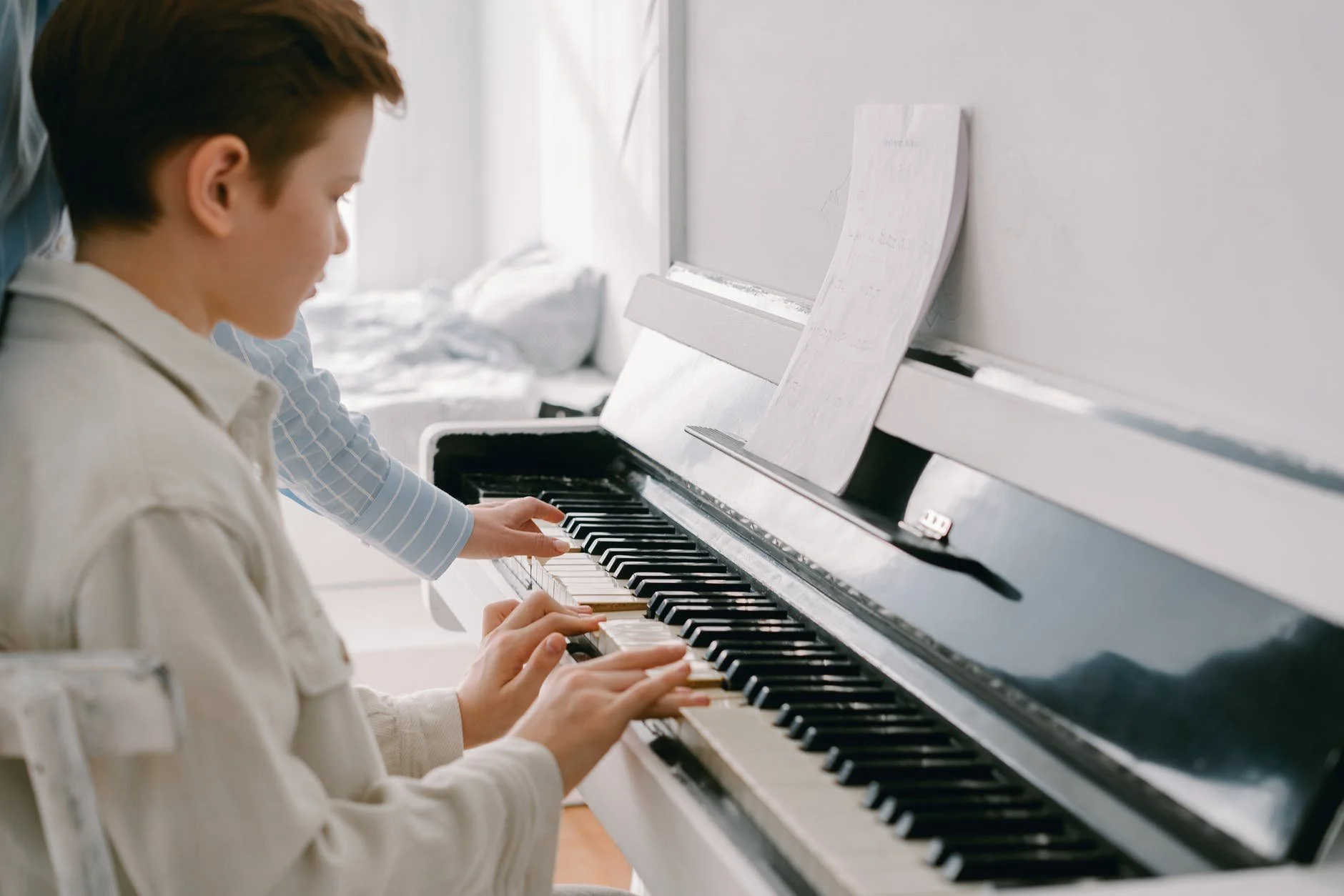Sometimes I feel I don’t give enough direction to beginning students. There is a lot going on that first lesson and a lot of information given. I know when I get a lot of information all at once, I have a hard time remembering much afterwards unless I have written some things down. I feel like much of starting to learn piano is a given and that some things are obvious. This post will help you get some straight answers as to what to expect when signing up for piano lessons and those first lessons.
One of the first things you will need for beginning piano lessons is an instrument. I have come across some articles that say this is a myth. I think the myth is that you don’t need a full blown piano. Pianos are big. They are bulky. They are very hard to move. They need tuning regularly. If you have the room and money to spend on one, they are an awesome instrument and that is surely the way you want to go. Learning piano involves learning how to strike the keys with just the right touch so that the hammer inside the piano will strike the string just so. It is an art. It is what makes me love piano.
Pianos are a lot of work due to maintenance though. Electronic Keyboards are constantly being improved to have the sound and touch of an actual piano. Keyboards cost a fraction of what pianos do. They can be put in a smaller area, and you can use headphones, so you don’t bother everyone at all hours of the day and night.
So, before you sign up for beginning piano lessons, make sure you have a keyboard or piano. The size of the keyboard, I will also cover in another post, but basically what you will need is a full size keyboard (88 keys) with weighted keys.
If someone inquires to learn piano and are ready to sign up, I ask if they have an instrument. If you do not have one, we wait to schedule lessons. I believe this saves time and money as it can take some doing to track down a decent keyboard, especially if used.
There are some things that will help beginning piano lessons be more successful. When you are all signed up to for lessons, it is not like a sport where you drop your child off and you did your part. To be successful, learning piano takes an effort on both the teacher, the student, and the parent. Parents do not have to sit with their child during an entire practice, but they should make time in the family's schedule so that there is time to practice and monitor that time like you would for homework. Setting a regular time that the student is aware of will keep everyone on the same page. Also, if your child is not a self-starter and they cannot get going without direction, you may have to get them started so they learn how to practice. Knowing how to practice needs to be learned just like practicing your music.
Here is an example of what is expected through a week in the life of a piano student on their journey to learn piano. Starting with that first beginning piano lesson, everything that they are to practice should be marked down at the lesson by the teacher so that when they are home, they know what they are to do. I also like to use tabs to mark the music. That way they can just open their book to the page they are to practice when at home. The best thing to do within a day of lessons is to go through their lesson at home before they forget what happened during the lesson. Waiting a few days can make the student forget what they are supposed to do.
After practicing most days during the week, when you come back to your lesson, you will play the songs for your teacher that were designated for practicing. It doesn’t matter if they are perfected, but your teacher will know if you have been practicing or not. Practice always makes a piece improved. Playing these pieces isn’t for your teacher to see if you can play them perfect, but to see if you need to go through certain parts so that you understand the concept better. Moving on to the next lesson, you can build on the concepts that you have learned in the previous lesson.
Some of the things I look for when a student starts their weekly lesson is that they open their books up to the lesson page. This tells me they have looked at it more than once! Next, I look for starting notes. Can they find their starting notes without help? Again, if they have practiced regularly, they will know where to start. After teaching for a while now, I realize I did not pull anything over on my piano teacher when I was in lessons!
When you learn piano, it brings in so much more to the table than just playing piano. Things like discipline and perseverance can also be learned. Besides the obvious, you are getting so much in return. Knowing what to expect can help you help your student as a parent, or as an adult student know how you can be successful at beginning piano lessons.

